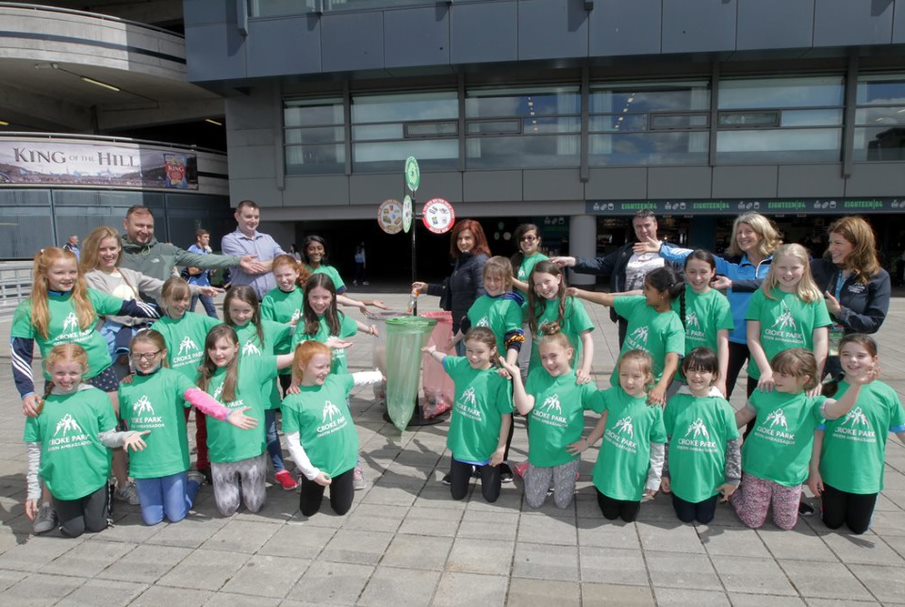#Natureworks: An Ecosystem Of Event Success

In a sector that is competitive by nature, radical transformation and collaboration is challenging for many yet has the ability to deliver results that are good for all stakeholders - writes Melissa Baird from GDS-Movement.
A recent report by the GDS- Movement (sponsored by the IMEX group and Marriott International) has explored the new paradigm of event management and success. The ‘regenerative revolution’ lays down the principles of circularity, as established by leading proponents of the model and offers a framework based on nature’s principals that considers the benefit of the whole system to establish success.
It explores and asserts that for the global meetings and events industry to recover, flourish and thrive in a future world, the temptation of adopting COVID-19 recovery strategies based on a wish to return to the ‘normal’ of the past must be overcome.
Instead, use the pandemic as a ‘great reset’ to rethink, reimagine and redesign a new restorative, resilient, inclusive and zero-carbon growth model. By doing so we can restore and rejuvenate the planet, its people and create a healthier economy, rather than seeking to sustain what no longer functions.
This deep cultural and systemic transformation requires a paradigm shift in beliefs, values and business models. The result will be heightened resilience when faced with the further risks of climate change, biodiversity collapse and social unrest.
In a circular and regenerative economy, economic activity builds and rebuilds overall system health. It is restorative and regenerative by design. The concept recognises the importance of the economy needing to work effectively at all scales, for big and small businesses, for organisations and individuals, globally and locally.
A regenerative future, inspired by nature
Regenerative events have a focus on quality, effectiveness, harmony and wellness. They are circular by design aiming for energy, natural resources and materials to be conserved, enriched, reused, recycled and used to enhance equitable development. They design out waste and pollution and improve resilience by increasing diversity, inclusivity and equality. They also focus on regenerating and rejuvenating natural systems and communities.
The GDS-Movement’s Hannuwa − a framework for event management − has four key principles and an eight-step methodology which serves to inspire, educate and guide event professionals on their transition to more regenerative and circular event management.
The result is an approach where event planning, resourcing, procurement and production are designed and managed to optimise ecosystem functioning and human well-being.
Events and capital generation
Through integrating the four core principles into the business models, design and operations of events, the old linear systems' thinking is disrupted and there is an accelerated shift to more purposeful, inclusive and regenerative practices based on living systems design.
Instead of viewing the hosting and supplier community as supplying resources and assets in the organisation of the event, consider how the event itself provides “ecosystem services” back to the community and thereby offers enhanced value.
By rethinking and redesigning how events create impact for stakeholders, events can generate:
- Natural capital: by protecting, restoring and regenerating ecosystems and services;
- Human capital: by creating jobs, satisfying employees, improving people's health, creating new knowledge, skills and motivation;
- Social capital: by stimulating innovation, collaboration and the development of thriving and inclusive communities, businesses, trade unions, schools, and voluntary organisations;
- Financial capital: by generating incomes, creating shareholder value, strengthening competitiveness, and building business resilience;
Case Study: Croke Park Stadium, an example of how to empower your community
Developing the value in an organisation may represent itself as the need to nurture staff, clients, supply chain partners, and other stakeholders. By taking a regenerative approach to community management, the development of social capital can be stimulated and enhanced. Croke Park Stadium in Dublin espouses this approach.
The stadium, which is a business member of the All-Ireland pollinator plan, implements an urban biodiversity programme that includes the installation on stadium grounds of bird boxes for native bird populations and of insect habitats such as bee bricks and bug hotels as well as a planting programme of native trees and pollinator-friendly ground cover.
Outside the stadium walls, Croke Park’s sustainability and community teams have partnered with local authorities and residents on initiatives for the thoughtful greening of neglected spaces in the local area.
The Croke Park approach to sustainability and community ensures that the stadium generates not only employment and business opportunities in the area but also engenders huge pride of place in the local community. This investment in people and place contributes to the sense of belonging and well-being that is shared by residents and stadium employees alike. It has enabled Croke Park to act as the heart of the complex and vibrant community of Dublin’s North inner city.
For more inspiration about regenerative events and meetings read the full report here.
Research partners:
The IMEX Group has one mission: to unite and advance the meetings industry – doing everything it can to educate, innovate and help everyone in the business events industry make powerful connections with the right people. The IMEX team serves this mission, and the industry we love, by delivering two market-leading trade shows every year; one in Frankfurt each spring and one in Las Vegas each autumn.
The Global Destination Sustainability Movement unites and enables destination management professionals to create flourishing and resilient places to visit, meet and live in. Its mission is to co-create sustainable and circular strategies, mindsets and skill sets that will enable destinations to thrive, and society and nature to regenerate.
Marriott International, Inc. encompasses a portfolio of more than 7,400 properties under 30 leading brands spanning 135 countries and territories. Marriott operates and franchises hotels and licenses vacation ownership resorts all around the world.
Other Articles
About Us
Supported by the Union of International Associations (UIA), the International Association of Professional Congress Organisers (IAPCO) and the Interel Group, the global public affairs and association management consultancy, Headquarters Magazines serve the needs of international associations organising worldwide congresses.



 (3).JPG)












